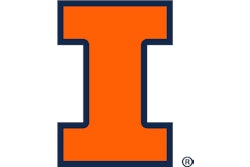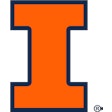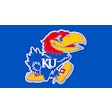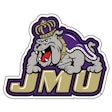A family that thought it was donating to fund University of Wisconsin tennis scholarships now wants a refund, claiming their $500,000 gift went to facility improvements instead.
As reported by The Capital Times of Madison, Richard Coyle’s family donated the money in June 2016 following a statement in his late mother Marion Lou Coyle’s will to “fund the UW tennis program.” Specifically, she intended it to fund tennis scholarships as a way to honor Douglas Coyle, her late husband and Richard’s father, who attended the UW on a tennis scholarship in the 1930s and dedicated much of his life to bringing opportunities to young tennis players.
Marion Lou Coyle’s motives were never formally documented, however, and the money was eventually used to renovate the athletic department's outdoor tennis facilities.
“We didn’t want to pour concrete,” Richard Coyle said. “We wanted to enrich lives.”
Coyle remembers an initial phone call informing the Foundation about the money in July 2015, when he was told the money could be used for scholarships, as well as a visit with Wisconsin tennis coaches in October 2015, but there is no official record of any such conversations.
In an email statement, UW-Madison spokesman John Lucas said Coyle’s information is inaccurate. Because the language in the bequest said it should be distributed to the “University of Wisconsin, currently located in Madison, Wisconsin,” Lucas said it was made to the university and never the Foundation. Per System policy, UW-Madison rerouted the money to the UW System Trust and complied with the bequest to “ensure that their intended uses match the university’s need and ultimate use,” Lucas said.
“We regret that the donor’s family has a misperception of the university’s actions in this matter, but we continue to be grateful for the gift and the passionate support for UW-Madison’s tennis programs."
Last year, Coyle began working with third-party organizations to submit open records requests to track down the money. He learned that, soon after the donation, the athletic department asked the Board of Regents to exempt the gift from the System's policy on large unendowed gifts, according to The Capital Times.
Endowed funds are held in perpetuity by a university to invest and accumulate over time. Conversely, unendowed gifts over $250,000 automatically become Board-designated endowments, meaning “only the income from the gift is made available for expenditure.”
“The improved outdoor tennis complex will provide a wonderful opportunity for us to recognize the donor in a place where others can enjoy the sport that brought him such joy,” UW athletic director Barry Alvarez wrote in a letter to the chancellor and UW trust funds director in September 2016. “As an aside, UW men’s and women’s tennis scholarships are funded by a significant number of sport-specific endowed funds and annual gifts. The facility project is the greatest need for our tennis program.”
Alvarez added that Coyle had “indicated support” for designating the gift to facilities needs. According to The Capital Times, Lucas also said in his emailed statement that athletics staff were in touch with the Coyle family, including in-person visits, phone calls and emails in which they “expressed personal support and enthusiasm” for using the gift toward stadium renovations.
“Perhaps the school was not required to issue a gift agreement, notify the donor, or obtain written consent. But it could have done any of those things,” Coyle wrote in a letter to various media and philanthropic organizations in February. “Their own beliefs, statements, and principles suggest they should have done those things. But they did not.”
The Intelligent Donor’s Guide to College Giving, an October 2020 report from the American Council of Trustees and Alumni, cites the Coyle family gift as a case study on the importance of donor specificity.
“Had the original donor expressed in writing that the bequest was solely for the purpose of funding tennis scholarship, UW would likely not have been able to expedite using the funds for a capital project instead,” the report authors wrote, as reported by The Capital Times. “Although a written gift agreement with clear instructions is not an absolute guarantee that donor intent will be honored, it makes it much more likely.”
“We just want the money back, quite frankly, so we can enrich people’s lives elsewhere,” Coyle said. “Wisconsin says they don’t need the money? Fine. They should have told us that four years ago.”





































